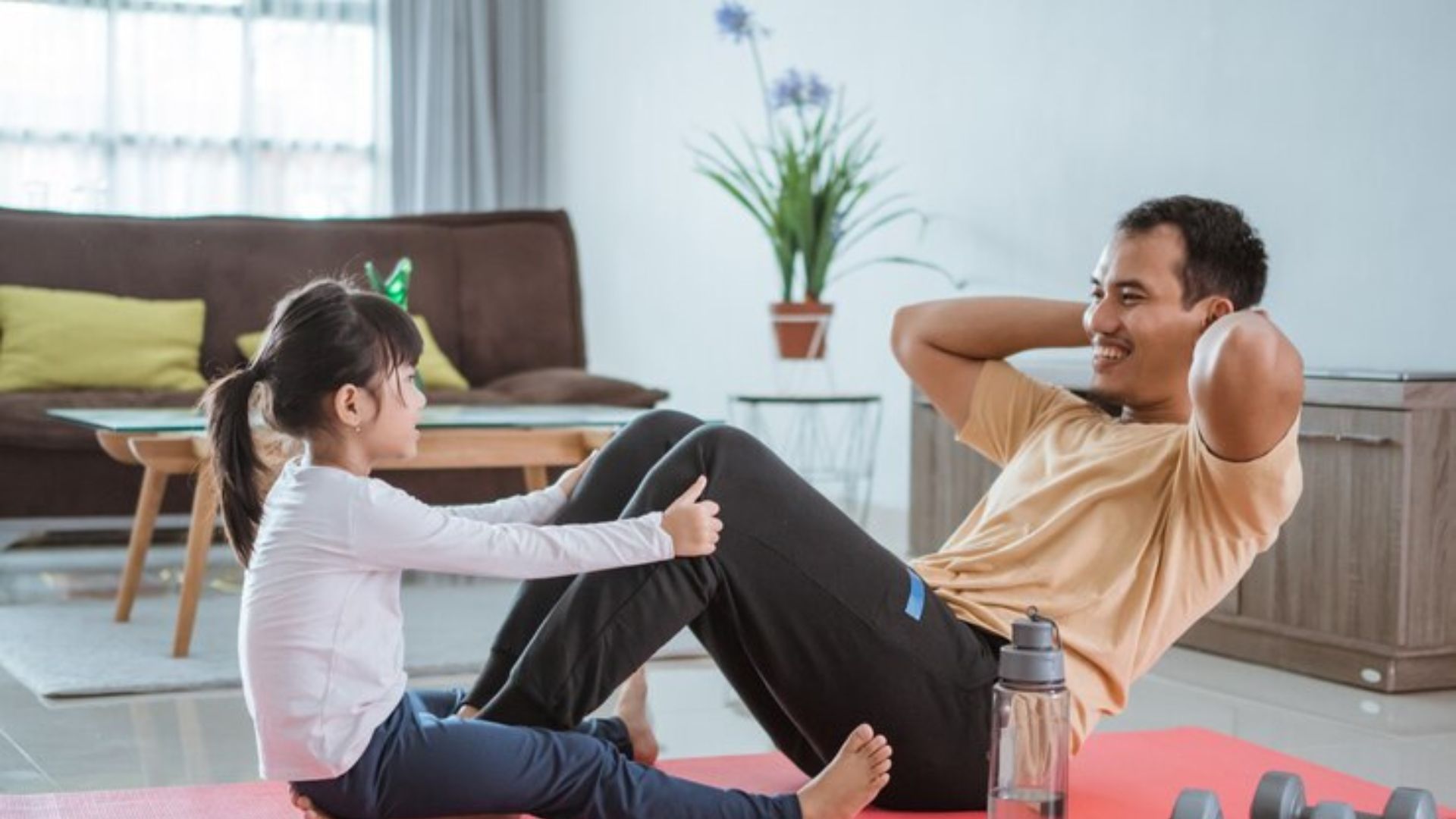In today’s fast-paced world, it can often feel like mental clarity and focus are elusive. With constant distractions, stress, and the pressures of everyday life, maintaining sharp focus seems like a challenging task. However, physical activity plays a critical role in sharpening your mind. Research shows that regular exercise not only improves physical health but also significantly boosts cognitive function, including mental focus and clarity.
One of the best ways to enhance your mental focus is by incorporating simple, effective fitness challenges into your daily routine. These challenges, which can be done from the comfort of your own home, provide a convenient and accessible means of improving both physical and mental health.
This article will explore easy home fitness challenges that target your mental focus. By engaging in these challenges, you will be able to train your body while also improving your concentration, memory, and overall cognitive performance.
Importance of Mental Focus in Daily Life
Before diving into the fitness challenges, it’s important to understand why mental focus is so vital. Our brains are constantly processing information, but when we are unable to concentrate, we are less productive, make more mistakes, and feel mentally exhausted. Developing mental focus enables us to tackle tasks with greater efficiency, solve problems quickly, and stay sharp throughout the day.
Additionally, improving mental focus can reduce anxiety, stress, and mental fatigue, all of which contribute to a more productive and balanced life. Exercise is a powerful tool in this process, offering both short-term and long-term benefits for cognitive function.
Easy Home Fitness Challenges for Mental Focus
There are numerous home fitness challenges you can incorporate into your routine to enhance your mental focus. Here are some of the most effective and easy-to-follow options:
Yoga for Focus and Clarity
Yoga has been practiced for centuries for its physical and mental health benefits. It’s a low-impact exercise that encourages mindfulness and breath control. The connection between body and mind in yoga helps calm the nervous system, reduce stress, and increase mental clarity.
Challenge: Commit to a 15- to 30-minute yoga session every morning or evening. Focus on poses like Tree Pose (Vrikshasana), Eagle Pose (Garudasana), and Warrior III (Virabhadrasana III), which improve balance, concentration, and core strength.
Why It Works: Yoga strengthens the body and trains the mind to stay present. The breathing techniques (pranayama) used during yoga also activate the parasympathetic nervous system, which reduces stress and promotes mental clarity.
Plank Challenge
The plank is a simple yet highly effective core exercise. Holding the plank position requires strength, stability, and mental focus, making it a great exercise for both physical fitness and cognitive function.
Challenge: Start with holding a plank for 30 seconds and increase the time by 10 seconds every day. Aim to hold the plank for at least 3 minutes by the end of the month.
Why It Works: Maintaining the plank position requires sustained focus on your form, which strengthens your mental endurance. The challenge of holding this position for extended periods also enhances concentration and determination.
Meditation and Breathing Exercises
Meditation and deep breathing exercises are incredibly effective at improving mental focus and overall well-being. Taking time to meditate allows your mind to rest and reset, improving attention span and mental clarity. Breathing exercises, such as diaphragmatic breathing, calm the nervous system and reduce anxiety.
Challenge: Practice a 10-minute meditation session every day. Alternatively, try 5-10 minutes of deep breathing exercises or box breathing (inhale for 4 seconds, hold for 4 seconds, exhale for 4 seconds, and hold again for 4 seconds).
Why It Works: Meditation and breathing exercises help you practice mindfulness, which trains your brain to focus on the present moment. Regular practice can enhance your ability to concentrate for longer periods and reduce mental fog.
Jump Rope for Cognitive Agility
Jumping rope is a great cardiovascular exercise that not only improves physical fitness but also requires coordination and mental focus. As you jump, your brain must coordinate the movements of your hands and feet, which helps improve cognitive function.
Challenge: Begin by jumping rope for 3 minutes and aim to increase the time by one minute each week. Aim to jump rope for at least 10 minutes by the end of the month.
Why It Works: Jumping rope improves hand-eye coordination, balance, and rhythm, which challenges the brain to stay engaged. The intensity of the exercise also stimulates the release of endorphins, enhancing mood and focus.
Brain-Boosting HIIT (High-Intensity Interval Training)
HIIT is a fast-paced workout that alternates between intense bursts of activity and short periods of rest. It’s known for its physical benefits, such as improved cardiovascular health and fat loss. However, it also has a positive impact on mental clarity. The short, intense bursts of exercise require mental focus to push through, which improves concentration.
Challenge: Try a 20-minute HIIT session, consisting of exercises like jumping jacks, squats, high knees, and burpees. Perform each exercise for 30 seconds, followed by a 10-second rest, and repeat for 5 rounds.
Why It Works: HIIT challenges your mind to stay focused during the intense bursts of activity. The rapid transitions from one exercise to the next require concentration and mental engagement, which sharpens cognitive function.
Balance Exercises to Improve Coordination
Improving balance and coordination is key to both physical and mental agility. Exercises that challenge your balance, like standing on one leg or performing dynamic movements, require focus and concentration.
Challenge: Incorporate balance exercises into your daily routine. Start with standing on one leg for 30 seconds and gradually increase the time as your balance improves. You can also try exercises like lunges, single-leg squats, or balance board exercises.
Why It Works: Balance exercises require you to focus on your body’s alignment and posture, which strengthens mental focus. These exercises also improve coordination, which has a positive impact on cognitive agility.
Dance Workouts for Mental Sharpness
Dancing is a fun and effective way to improve physical fitness and mental focus. Whether you’re following a dance routine or just moving to music, dancing challenges your brain to remember steps, maintain rhythm, and coordinate movements.
Challenge: Dedicate 15-30 minutes each day to a dance workout. You can follow an online dance tutorial or just freestyle to your favorite music.
Why It Works: Dance requires both physical and mental coordination, which engages the brain. Learning new moves or routines enhances memory and cognitive function, while the upbeat nature of dancing stimulates the release of endorphins, improving mood and focus.
Strength Training for Mental Toughness
Strength training isn’t just for building muscle – it’s also great for mental focus. Lifting weights or performing bodyweight exercises challenges your body and mind to stay engaged throughout each set.
Challenge: Commit to two to three strength training sessions per week. Focus on exercises like squats, lunges, push-ups, and deadlifts. Start with light weights or bodyweight exercises and gradually increase the intensity.
Why It Works: Strength training requires concentration to maintain good form and proper technique. The mental focus needed to push through each set translates into greater cognitive resilience and improved attention span.
Conclusion
Incorporating fitness challenges into your daily routine is a great way to boost mental focus and improve cognitive function. By engaging in simple exercises like yoga, meditation, strength training, and dance workouts, you can enhance both your physical and mental well-being. Regular physical activity helps clear mental fog, reduce stress, and improve concentration, leading to better productivity and overall mental clarity.
ALSO READ:Mental Wellness Tips for Introverts: Boost Your Well-Being
FAQs
How long should I practice fitness challenges to improve mental focus?
It’s recommended to commit to at least 15-30 minutes of physical activity each day to see noticeable improvements in mental focus. Consistency is crucial for long-term benefits.
Can home fitness challenges replace traditional meditation for focus?
While home fitness challenges can enhance mental focus, combining physical activity with meditation offers a holistic approach to improving cognitive function.
Do I need special equipment for these challenges?
No, most of the fitness challenges mentioned in this article can be performed without special equipment. You may need a yoga mat for yoga or basic dumbbells for strength training, but many exercises require only your body weight.
Can fitness challenges improve my memory?
Yes, physical activity, especially exercises that challenge your coordination and mental focus, can help improve memory and cognitive function.
How can I stay motivated to complete my fitness challenges?
Set clear goals, track your progress, and reward yourself for milestones achieved. You can also join online fitness communities for support and motivation.







